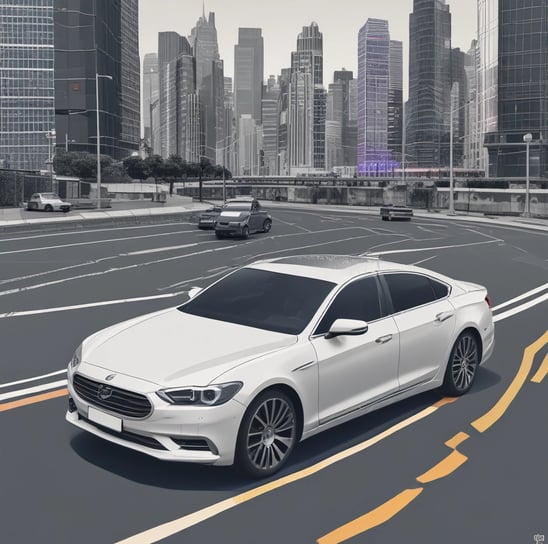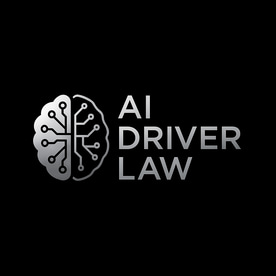
Navigating AI Legal Challenges
Accident Liability Cases
Representing victims of self-driving car collisions.
Holding manufacturers accountable for AI failures.
Investigating software defects in autonomous systems.
Manufacturer Accountability
Software Defects
Navigating Legal Challenges in AI
At AI Driver Law, we specialize in tackling the legal complexities of accidents involving autonomous vehicles, ensuring accountability and advocating for victims in this rapidly evolving technological landscape.


Your AI Legal Experts
Innovative Legal Solutions
We represent clients in accident cases, investigate manufacturer accountability, and navigate the intricate regulations surrounding AI-powered transport systems to protect your rights and ensure justice.
Innovative Legal Solutions
Expertise in AI vehicle accident and liability law for a rapidly evolving transportation landscape.
Accident Liability Cases
We represent victims in collisions involving self-driving cars and autonomous transport systems with dedication.


Manufacturer Accountability
Investigating AI malfunctions and software defects to ensure responsible parties are held accountable for failures.


Driving Innovation in Legal News
Stay updated with the latest AI-driven developments in the law industry through our comprehensive news platform.


150+
15
Trusted Source
Expert Insights
Client Feedback
Hear from our satisfied clients about our unique legal services.
The team at AI Driver Law handled my case with exceptional expertise and professionalism. I felt supported throughout the entire process, and they fought for my rights.
John Smith
San Francisco
After my accident, AI Driver Law provided invaluable support in navigating complex regulations. Their knowledge of AI-related cases is impressive, making them a trusted ally in legal matters.
Jane Doe
Los Angeles
★★★★★
★★★★★
Frequently asked questions
What is AI Driver Law, and how does it regulate autonomous vehicles?
AI Driver Law refers to the set of legal frameworks and regulations governing the use of artificial intelligence (AI) in autonomous vehicles. These laws address issues such as safety standards, liability in case of accidents, data privacy, and the ethical implications of AI decision-making in self-driving cars. The goal is to ensure that autonomous vehicles operate safely, fairly, and in compliance with existing traffic laws.
Who is liable in case of an accident involving an AI-driven vehicle?
Liability in an accident involving an AI-driven vehicle can be complex. In many cases, responsibility may fall on the manufacturer of the AI system, the vehicle manufacturer, or the company operating the vehicle, depending on the specific circumstances. If the AI system failed, causing the accident, the manufacturer might be held accountable. However, in some jurisdictions, liability could also rest with the owner or operator of the vehicle, particularly if human intervention was required.
Does the law require human oversight of AI-driven vehicles?
In most jurisdictions, AI-driven vehicles are currently required to have human oversight, especially in early stages of deployment. This means that a human driver may need to be present to take control in case of system failure or an emergency. However, as AI technology improves, some laws are evolving to allow for fully autonomous (Level 5) vehicles with no need for human intervention.
How do AI driver laws address ethical concerns in autonomous vehicle decision-making?
AI driver laws often address ethical concerns by regulating how autonomous vehicles should make decisions in critical situations, such as accidents. For example, some proposed laws suggest that autonomous vehicles should be programmed to prioritize human safety, while others consider issues such as the ethical dilemma of choosing between multiple harm-reducing outcomes in an unavoidable crash scenario. These ethical guidelines aim to balance safety, fairness, and public trust in autonomous vehicle technology.
Are there specific AI training standards required for autonomous vehicles by law?
Yes, some regions are developing regulations that require AI systems in autonomous vehicles to undergo rigorous training and testing. These standards ensure that AI algorithms are properly trained to recognize and respond to a wide variety of traffic situations, pedestrians, and hazards. Testing often includes real-world scenarios and simulated environments to guarantee that the AI makes safe, informed decisions under diverse conditions.
What kind of insurance coverage is required for AI-driven vehicles?
Insurance requirements for AI-driven vehicles vary by region, but many jurisdictions are adapting existing insurance laws to cover autonomous vehicles. Typically, insurance will focus on liability for accidents, system failures, or data breaches. Companies developing autonomous vehicles may be required to carry higher levels of insurance to cover potential risks associated with AI driving technology. Additionally, owners of AI-driven vehicles may need to purchase specialized insurance to address the unique risks posed by self-driving technology.
